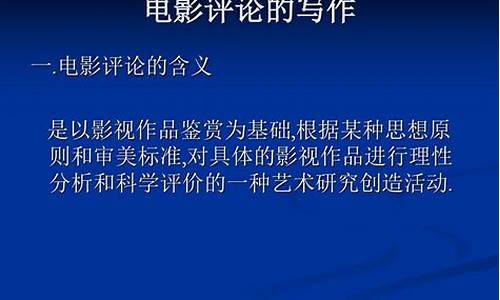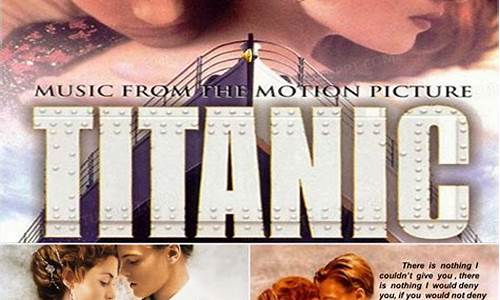百万英镑的英文影评怎么写_百万英镑英语影评200词

你说的是 1953年的 百万英镑 吧 ,原著是 马克 吐温的 《百万英镑》,你可以先读一下原著 然后找些对于的评论 (反映主题之类的)、也适用** 然后再看遍** 讲讲演员、对白啊、其他方面的
读后感
://zhidao.baidu/question/81117085.html
中文的:
看完**《百万英镑》后,我们在对美国作家马克.土温对于资本主义“金钱至上,金钱万能”的社会的无情讽刺以及他所特具有幽默笔法和深刻社会洞察力而折服的同时,我们不能不注意到这个故事片中隐藏的这样的一个社会经济现象:就是在市场经济下,良好的信誉本身就是一种无形的资产。
**中流落英国街头的美国人亨利.亚当身无分文 ,贫困潦倒时,却因为偶然的机遇,得到两个富翁兄弟给予的一张面值为100万英镑的票子,在一个月内没有花一分钱,却得到英国上层社会的所给予的种种“免费”的高贵待遇,结果还用这一百万的票子赚了20万英镑,从此改变了自己的命运:得到了美丽善良贵族**作为他的妻子。亚当亨利最终能够不花一分钱而得到这么多的厚遇:难道仅仅就是人们所谓的“金钱至上,金钱万能”的低俗观念所起的作用而放弃自己的“利益”而愿意无偿提供一切服务。这就是市场经济的所特有的现象。良好的信誉在时刻起着作用,它使金钱无形中在社会上从一部分人流到另一部分人的手里,它使相信他的人财源广进,腰缠万贯,事实也是这样的。所以都吹捧它,所以出现了不花一分钱也能享受种种高贵的待遇的《百万英镑》影片中的带有戏剧性的事情。
先说亚当在小餐馆中的奇遇。当他因为一百万英镑的票子找不开时,店老板不但不要钱,而且欢迎他时常光临,愿意提供免费的“昂贵”食品和饮料,难道这个店老板的脑子有问题,天下哪里有免费的午餐?其实店老板比是谁都精明,一个奇怪的百万“富翁”拿着一张当时只发行了两张面值百万票子,能来到他的小餐馆:这无疑是免费上门的而且具有轰动性广告。他是一个百万富翁,在当时社会具有名人轰动效应,他能够来到这个小店,无疑向社会证明了他这个餐馆“饭菜好,服务好”最好证明,因为他做的好,所以百万富翁来光临。其实这只是一种偶然。这种事情一旦被人们传出去,就是这家小餐馆在社会上所形成的良好的“信誉”,这样他就会有更多的顾客,更大的市场,甚至能够成为同行中的佼佼者,成为一家星级宾馆。这创造的价值比那区区几英镑的用餐费比起来,孰轻孰重,餐馆老板心里自然明白。不光一次不需要钱还请他以后多光临。现代的企业请名人做广告无非也在追求的就是这种效果,但是这比起名人不请自来做的“广告”效果就差远了。这说白了:就是信誉是一种无形的资产指导着人们的行为方式。
后来裁缝店的老板那他的所作所为就是更富理性了和精通经商之道了。首先是他对这位“不露庐山真面目”的“怪异”百万富翁做出的肤浅的错误判断而深感惭愧,不惜“流泪”以示道歉:以“亲王”的标准给他精心量身定制高贵的衣服,后来还提出给他“无偿”定制多套不同场合所需要不同规格的上层社会流行的服饰的,而且亲自派人送到百万富翁的家里。当他得知这位百万富翁还没有选好住处时,他即时推荐了那个伦敦最为豪华的宾馆,并且亲自为百万富翁联系好一切有关事宜。这样他就把他的产品很容易的打进了上层社会集中的高级消费市场:百万富翁之所以能够选他们的裁缝店作为自己衣服供货商,无疑是他们做的好,无疑向社会证明他们的裁缝店是具有良好的“信誉”。当他们得意地将为百万富翁做的大量的衣服排队送来,走在这座豪华的宾馆的楼梯上时,这种宣传效果是很明显的。他用“百万富翁”的名人效应更好的树立了自己企业的“良好信誉”,所以他愿意无偿提供这种免费的高级待遇。当然后来的宾馆所做的一切免费服务也就出于这种考虑。
以上这些给百万富翁提供免费服务的餐馆,裁缝店和宾馆都是借助“百万富翁”的“名人广告”效应从而给自己在社会上树立“良好的信誉”,使自己的生意更加兴隆,从而积累更多的社会财富。我们接下来谈谈百万富翁是怎样利用“信誉”效应给自己创造财富的。
在当时社会,拥有百万资产,而且是一个拿着纯现金的百万富翁,无疑向社会证明他的企业和他这个人具有良好的信誉,所以积累了这么数字庞大的社会财富。他是个具有良好信誉的富翁,所以美国驻伦敦大使馆的人很容易的无须任何抵押提供给他一百万英镑的现金,解决他应付繁多的社会事务而没有零钱的困难。他的在上层社会表现出来的优雅举止和诚实品格使他具有良好的个人信誉,更重要的是他为慈善事业上慷慨解囊更是在社会上树立了一个具有很强的“社会责任心大富翁”良好信誉。一个商人寻求他作为自己的合作伙伴,结果使“好希望”股票一路狂飙。这都是看好他良好的“信誉”所起到的作用。那么当他失去他的“信誉”成为众人心目中的“大骗子”时,他又是怎样的一种处境呢?首先是宾馆方面一再地逼他付帐,否则要将他赶出,裁缝店要他付帐,结果把所有的无偿提供给他的衣服强行搬走,“好希望”价格一路下滑,股东们甚至要跟他决斗,打死这个“骗子”。因为他已经失去良好的“信誉”,成为众人和媒体中的“大骗子”他的这种效应不但不能给裁缝店带来较好的“信誉”而且将以前在此基础上建立“良好信誉”而丧失,所以没有必要在给他提供这种无偿的高贵待遇,他们要做的是尽可能快的要回自己的“损失”和这个“骗子”脱离一切关系,以减少他给店铺和宾馆所带来的负面效应。当然这一切都是因为一个“误会”,因为一个英国老贵族想住进百万富翁住的高级房间而让女服务员把那张“百万英镑”的票子给藏到房间的地毯下面去了,搞的一个“恶作剧”。
英文的:
Among Mark Twain's less well-known stories was 1893's 'The £1,000,000 Bank-Note' which, much altered, provides the source for this 1953 film. Penniless and stuck in Edwardian London (the film is set in 1903), American seaman Henry Adams (Peck) encounters two eccentric, wealthy brothers: Oliver (Squire) and Roderick Montpelier (Hyde-White). The pair's arguing over wealth, and more specifically how people respond to it. They set Henry up as a guinea pig for a wager involving a million pound note, which they he the Bank of England issue to them. They hand Henry an envelope, only telling him it contains some money.
Understandably shocked when he discovers the note and learns that is it genuine, Henry tries to give it back but the brothers he diseared for a month, leing only an explanation of their wager and the offer of a job if he can survive the period without actually spending it.
Oliver had argued that by simply hing the note, a poor man could live like a lord, whereas Roderick insisted it would be useless unless actually spent. Initially, Oliver proves right, with vast credit extended to Henry as a result of him simply showing the note, with people assuming he's an oddball American millionaire. Henry has no problem with food, hotels and tailors, and even finds himself mixing with wealthy aristocrats, such as Portia Lansdowne (Griffiths), the niece of a duchess (Grenfell), and businessmen such as American Lloyd Hastings (Power), who is able to raise funds for an endeour simply through his association with Henry. Not everyone is keen to be chums though. The Yank-hating Duke of Frognell (Matthews) who was dislodged from his hotel suite to make room for Henry, gets his own back by simply hiding the note. What can Henry say to the de collectors when he can't produce the currency? Well, this being a good-natured 1950s comedy, it's hardly going to end in tears, as our hero is a virtuous fellow, incarnate in the noble form of Gregory Peck. This may be a long way from Peck's best known, or even best acted, role, but it's novel to see him in British comedy territory, and although such fare isn't exactly his strong point, his charm wins through. (Cary Grant or James Stewart who played a not dissimilar role in Capra's Mr Deeds Goes To Town would probably he been a lot more at home).
The supporting work from such venerable Brits as Wilfrid Hyde-White and the inimitable Joyce Grenfell give the film further entertaining robustness. It's all handled with professional aplomb by Ronald Neame, the former cinematographer, writer and producing partner of Did Lean. He is probably best known today for The Prime Of Miss Jean Brodie but would, bizarrely, help shape the 10s disaster movie genre directing such films as The Poseidon Adventure and Meteor. As for the crisply photography, it comes 2001: A Space Odyssey.
Verdict
It centres upon one gag (a poor American suddenly finding himself nigating the minefield of English wealth and class), but this is an amiably entertaining piece of vintage British comedy.
声明:本站所有文章资源内容,如无特殊说明或标注,均为采集网络资源。如若本站内容侵犯了原著者的合法权益,可联系本站删除。












